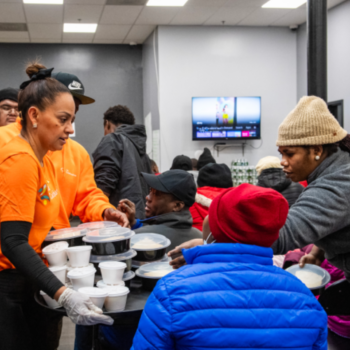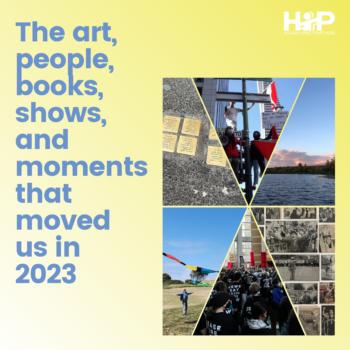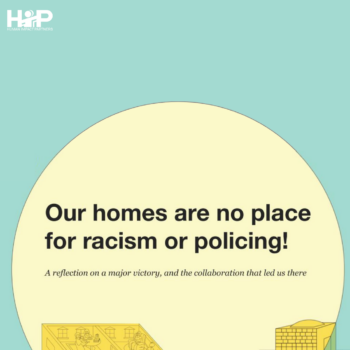| By Lili Farhang |
Two recent stories about people’s generosity toward strangers moved me deeply – but also got me thinking about the gap between our willingness to help individuals and the need to address the roots of our society’s problems.
- In Detroit, the Free Press featured the determination of James Robertson, who walked 21 miles a day to his $10.55-an-hour factory job, never missing a day of work. His last car broke down 10 years ago. There there’s no bus service along most of his journey, and area residents have repeatedly voted against funding the local suburban transit system. But a gofundme.com campaign – “Help James Robertson Get a Car” – quickly exceeded its initial goal of $5,000, raising more than $350,000 in just nine days.
- In New York City, Humans of New York blogger Brandon Stanton had a chance encounter with 13-year-old Vidal Chastanet, who cited his principal at Mott Hall Bridges school in a low-income section of Brooklyn as a source of inspiration. Stanton visited the school and learned about principal Nadia Lopez’ efforts to show students they could aspire even the most elite colleges. He started a crowdfunding campaign that has raised more than $1.4 million to not only provide students with the opportunity to visit Harvard, but scholarships to help them attend.
I am truly grateful to the many folks who supported these campaigns. But I have to ask: What if the power of all these supporters was used for more transformational change to address the underlying causes of James Robertson’s and Mott Hall Bridges’ needs?
The funding campaigns were a transactional approach in that they helped in negotiating the existing system by providing simple, direct assistance to people impacted by the systemic failures of Detroit’s transit system and the Brooklyn neighborhood’s poverty and limited educational resources. By contrast, a transformational approach is one that works to shift societal policies, practices, and values towards solutions that change the way institutions operate.
Transformational solutions benefit not just one person or community, but also others facing the same challenges. Transformational solutions aren’t simple, can be expensive, and require significant political will – but they change the system in a more meaningful and lasting way. It’s the difference between putting a bandage on a wound and preventing the injury in the first place.
President Obama’s State of the Union address and his recently released budget makes a series of proposals for transformational changes – affordable child care, paid family leave, paid sick leave, universal preschool, tuition-free community college, workforce development, raising the minimum wage, criminal justice reform, comprehensive immigration reform – that would affect the lives of people in structural and sustainable ways. From a public health and health equity perspective, these proposals would make a significant contribution towards creating the conditions people need to live healthy lives.
Another advantage of transformational change: the people with the problem do the work of solving it. Every one of the president’s proposals has its roots in the strategic work of organizations and community members who advocate for structural solutions that affect the lives of low-income communities and communities of color nationwide. They know that the deep challenges experienced in their communities cannot be solved by the kindness of strangers alone.
This aligns with how we at Human Impact Partners think of our work to improve health and equity at a population level, rather than at the individual level. We’ve recently seen two public health departments – in Alameda County and in Minnesota – who are taking this approach in their work.
At HIP, more and more, we’re thinking of our contributions as part of a larger, more coordinated movement with organizers, advocates, public health practitioners, and others to change the decision-making context that ultimately creates the conditions for health and equity. I’m reminded of the words of Lilla Watson, an aboriginal anti-apartheid activist from Australia, in 1965: “If you have come here to help me, you are wasting our time. But if you have come because your liberation is bound up with mine, then let us work together.”




